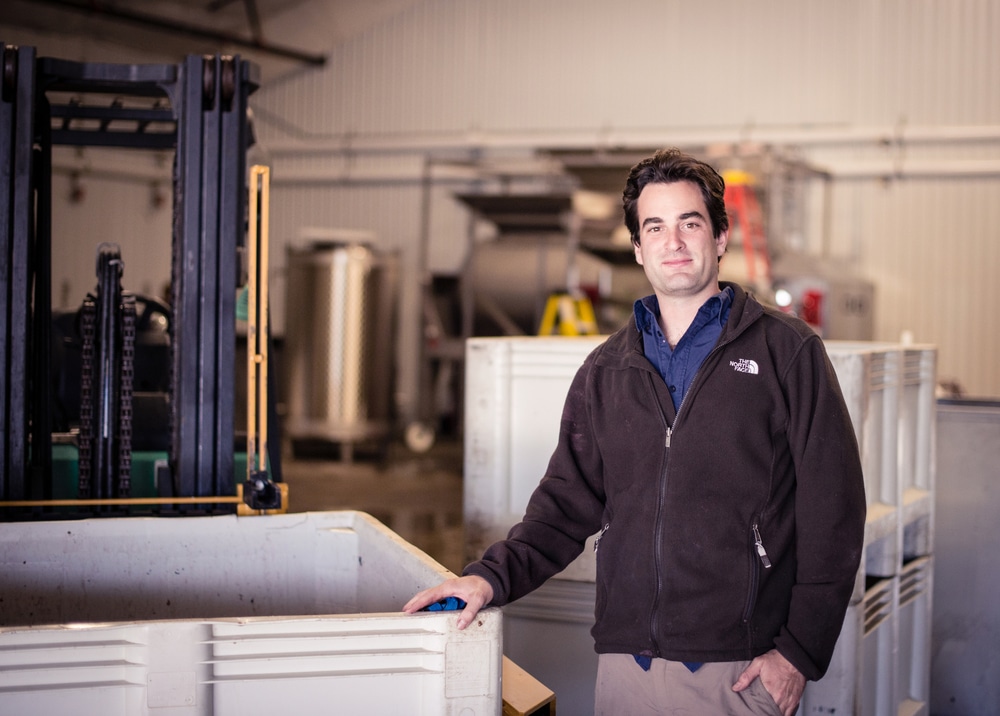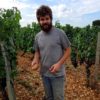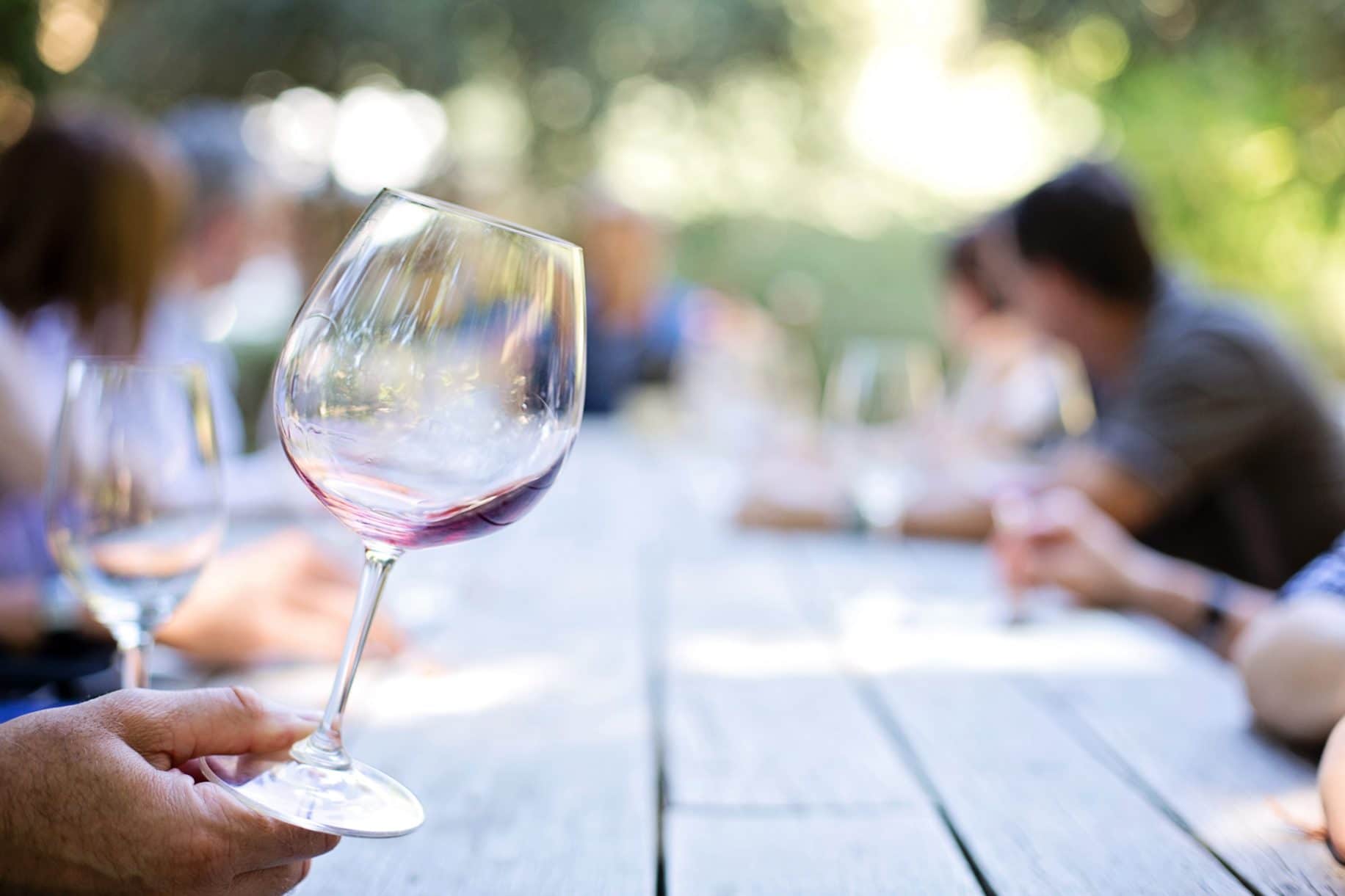Why did you become a winemaker?
I grew up in Los Angles and went to UCLA to study art. But I was restless and wanted to get out of Southern California, so after high school graduation I found a unpaid internship at Au Bon Climat/Qupe, packed my bags and left.
A week into my first harvest I knew I was hooked. I fell in love with the physical aspects of making wine—dragging hoses, walking vineyards, cleaning big pieces of machinery. The camaraderie of working with a small, extremely skilled team was also really rewarding. This was also when I was learning to taste so I was constantly discovering new things and being driven to figure out why a wine tasted like it did. I was obsessed and never looked back.
If you weren’t a winemaker what would you be and why?
That’s a hard one because I was 18 or 19 when I fully committed myself to wine. I probably would have been a painter or maybe a lawyer. I studied painting at UCLA and was doing investigative journalism for the UCLA newspaper. So those two fields aren’t as divergent as they sound. I also almost joined the Navy. Who knows!
What is your greatest strength as a winemaker?
I think my greatest strength is having a good intuitive sense for what is happening in the winery and in the vineyards. I have a lot of extremely experienced people around me that I trust and I am not afraid to ask questions or admit when I don’t know something. This might sound simple but a lot of people are afraid to ask questions.
Being organized during harvest and being focused on what I want to accomplish is imperative. I like harvest to be boring and slow. We don’t run around screaming, even when things are going to haywire. You need to be calm and also be a great problem solver. I am the opposite of the crazy chef cliché.
What is your biggest weakness as a winemaker?
This is a great question. My biggest weakest is that I have very limited formal training in wine. Actually I have no formal training, I learned it all working around the world at various wineries. That said, I am not sure if it would be easy to develop a real feel for wine if you learned about it in books and lectures before you go and get your hands dirty.
What’s the one mistake you made in the cellar you would never repeat?
Hmmm. I just finished my 15th harvest and not too many major mistakes come to mind, which is good! My first day at work in New Zealand I ran the forklift in the side of the building right next to the sewer line, which luckily didn’t break. To add to the embarrassment it happened to be right as my new boss and a few visiting winemakers from Santa Barbara has just entered the room! I was fined a case of beer and we moved on.
What is your proudest achievement?
My proudest achievement would be starting a winery with 6 barrels of wine and practically no funds and turning into something that is collected and enjoyed all over the world.
I am also very proud of my project with Bill Price, Lutum, which lets me make wines from some of the greatest vineyards in California. Bill has wineries with some of the best winemakers in California, so to start a partnership with him and build a company is a honor and also a great learning experience for me. LUTUM has also been sold in the most discerning wine markets in the world (SF, NYC, London, Tokyo…etc). At the end of the day it is all about seeing people enjoy something that we have worked so hard to make.
What was your scariest vintage to date?
That’s easy 2007, my first vintage! It was the first time I has 100% responsibility for every outcome. I was a confident 21 year old has just traveled around the world making wine. But that vintage, while the wines were great, taught me how much I don’t know and keeps me humble to this day. Every vintage is different so the moment you think you have a good grasp of everything you are in trouble. Now I love the harder vintages—2008, 2010, 2011, 2015—because they are a more complicated puzzle to figure out. And I these vintages have led to many of my best wines.
What is your favorite word or saying?
There always seems to be a saying that sticks during each harvest. This year was all about ‘what is the worst that can happen?’ But it has to be said with a sarcastic grin. There are a few other saying that should never be printed!
What is your most prized possession?
I try not to be too materialistic but we are all guilty in some way or another. My most prized position would be my wine cellar! I love old wine and I have been collecting wine from winemaking friends all over the world to age.
Second to that I have about 1500 books that I have bought over the last 15 years that would be hard to find. There are also a few pieces of art from friends that can never be replaced. Everything else can be found again on eBay!
What’s the oddest thing about you?
Hmm. I’m not sure. I guess I have a pretty diverse background. I have worked as a dog walker, lifeguard, receptionist, Senate Page in Washington DC, performance artist, painter, photographer, winemaker, journalist. I tend to turn things I enjoy doing into serious pursuits or jobs!
What song best sums you up?
I can’t think any one song. I listen to everything from classic jazz to TI.
What is your favorite memory?
I hope my favorite memory is not in my past!
Which of the five senses is your strongest?
My sense of smell is definitely number one. I am pretty good with seeing colors and textures too.
What is your biggest motivation?
I love what I do everyday so I motivated to keep doing it. I feel privileged to be able to make something that is so personal to me—so I work hard to not loose sight of that.
Which bottle of wine would choose to be stranded with on a deserted island?
1937 Domaine Romanée-Conti La Tache. I hope it is as good as I remember! And I hope I have a cellar to bring it to the right temperature!
What is the difference between a good and great wine?
Good wine checks all the usual boxes. Great wines hit you in ways you don’t expect. Great wine also has life to it. It changes in the glass and gets better over the course of a meal.
Name three individuals you would like to have dinner with.
Robert Persig, Oscar Wilde and a few friends I don’t get to see very often anymore.
Who is your winemaking hero?
Jean-François Coche—I only met him once but his wines are stunning and his hands are callused from working in the vineyards, which surprised me since he is one of the most famous winemakers in the world. I assumed he would wear a suit not overalls and I was dead wrong.
What does the concept of “balance” mean to you?
I think of in simple terms—if you have a scale with two sides it just needs to balance out. You can have a 1,000 pound boulder on each side or a just few small pebbles. Of course achieving this is wine is very difficult. The reward is that wines that are in balance age very well and, of course, taste great! The hard part, and the great part, is that with wine this is all very subjective. One person’s vision of balance can be totally different than their neighbors, which can lead to good dialogue. Differing philosophies on wine is what makes it exciting. If we all did the same thing what would be the point?
What is the one thing you want people to remember about your wine?
I hope my wines are remembered and enjoyed from people’s cellars for a long time to come. My wines are not cheap but I think they provide a great value. To buy a handmade bottle of wine from a 40 year old vineyard for 35-60$ that you could potentially age for 20+ years is a great thing.
Best comment made about your wine? Was it by a consumer, trade or press?
Every once in a while I pour a wine for someone I see it click in his or her head. Those rare moments that change the way someone see wine from then on are my favorite.





